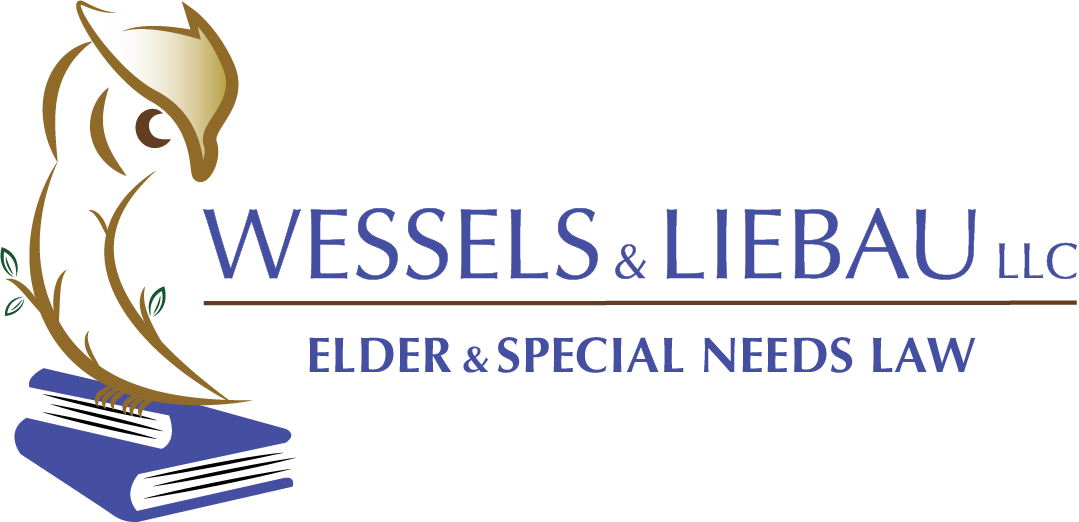When you schedule a new client appointment, we plan on up to an hour and a half to review documents, get to know your situation, and make an assessment of your case. For some clients, one appointment is all you need for us to give you good guidance on your legal issue. For this initial appointment, we schedule 90 minutes. This is billed at the attorney's hourly rate of $350-$410, with a minimum charge of one hour of time. The fee is payable at the end of the initial meeting.
After the initial appointment, most cases involving Medicaid and Long Term Care planning, and special needs planning, are billed at an hourly rate of $350-410. If you are more comfortable with a flat rate where you will pay a fixed fee, we can discuss that option after your initial case assessment. For cases billed hourly, we will send itemized bills out on a regular basis.
Most of our estate planning like wills, trusts, and powers of attorney, is completed on a flat fee basis. We will tell you what the flat fee is during the initial meeting.
Services of our support staff, such as legal assistant and paralegal work, are billed at $130-185 per hour. Because our support staff is very experienced and knowledgeable, we do strive to have them complete work at their more affordable rates when appropriate.
Our Fees:
"How much will it cost me?"
What to expect at your first appointment
The first time we meet, our attorneys will explain what it means to be our client, who we consider to be our client, and the importance of client confidentiality. When an appointment for an elder has been scheduled by a family member or other individual on behalf of the elder, we will typically want to meet with the elder alone before involving anyone else in the discussion. If you would like to know why this is, please read this brochure, "Why am I left in the Waiting Room?"
When a client has dementia: If we are meeting with a client who has dementia, we will want to talk to that person the same as anyone else. It is important for us to get to know the person and understand his or her preferences, and level of comprehension. If family/others are present at this time, please resist the urge to answer for that individual or make corrections if he or she answers incorrectly. There will be time to review and supplement additional facts. At our first meeting with a person with dementia, we are more concerned with getting to know and understand the person. If a family member knows that certain approaches work better, or that the individual has other impairments such as hearing or vision problems, please let us know ahead of the meeting. If a person with dementia becomes flustered and asks for help, then it is ok to provide the requested help. But please resist the urge to jump in and talk for that person unless he or she asks.
Why don't you offer a free initial consultation?
We sometimes have new callers ask whether our first meeting is free. It is not. We charge for our first consultation, as we explain in the section above called "Our Fees."
It is confusing to some callers who have heard the commercials on TV - "No fees unless we win." or "Meet with us for free." Some people expect that the first visit with an attorney is supposed to be free. The truth is, while some attorneys do not charge for the visit, it is because they are doing a different kind of law - and they take cases on "contingency." This means they get nothing if they lose, but a reasonable sum of money for their work if they win.
Other types of lawyers charge you nothing for the first visit but will charge you a large "flat fee" for the Medicaid work they do for you. From our perspective, we try to keep our charges more closely related to the work we are actually doing on your matter. Oftentimes, your legal matter only requires one visit so we can resolve it at the first meeting. We feel we deserve to get paid for our work and advice. We believe you will feel that way too.
Client forms:
Here are some forms you may find helpful in preparing for your appointment.
We typically ask you to provide us with documents related to your matter. It is highly preferable if these are in PDF form. If you do not have a scanner, you may have one right in your pocket! Most smart phones have a function that allows you to scan and save documents as PDFs. Please do not upload photos! Click on the button to the left for instructions.
